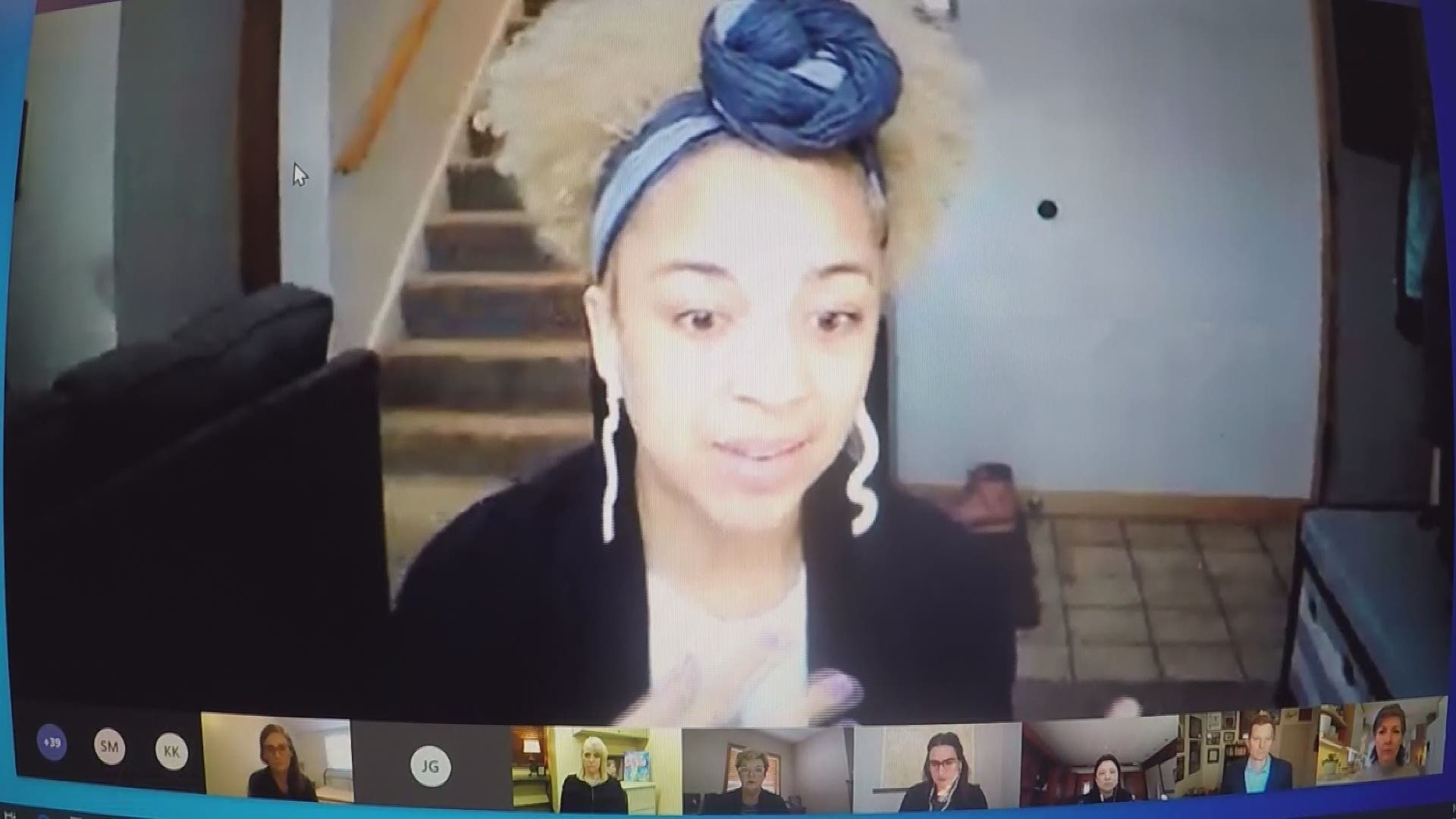MINNEAPOLIS — The economic downturn ushered in by the COVID-19 pandemic hit women harder than men, in part because the industries most affected had higher concentrations of female workers.
That was further compounded by a severe shortage of affordable childcare when schools and daycare centers were shifted to distance learning, leaving many women to make the hard choice to cut back on hours or give up work altogether.
It's not just anecdotal.
The Minnesota Dept. of Employment and Economic Development, or DEED, reports that 575,000 women have applied for unemployment benefits since the coronavirus arrived. The Federal Reserve Bank of Minneapolis reports that the female unemployment rate peaked at 16.1% last year at the same time the male rate peaked at 13.5%.
Childcare was a factor brought up often Tuesday during a DEED roundtable featuring Lt. Gov. Peggy Flanagan, the state's most high-profile working mom.
"When it comes to family caregiving, investing in childcare and paid family medical leave improves the economic security of women and it also lifts up the economy of Minnesota as a whole," Flanagan remarked.
Flanagan touted the programs offered by DEED to help displaced workers get back into the game, through training and assistance starting a new business.
"What we’re telling people is if you’ve always had an idea that you wanted to grow into a business, now is a time to explore if that is a viable opportunity."
A more troubling statistic is that workforce participation for women fell at a higher rate than it did for men. In other words, a higher percentage of women had simply stopped seeking jobs.
It points to the need for more employment opportunities with flexible hours that can accommodate women who need to balance a career with giving birth to children and caring for them.
"Mothers of 0 to 4-year-old children have seen a large decline, and evidence also suggest mothers without college degrees are having the worst experience," Alene Tchourumoff of the Federal Reserve told the panel.
"And if we dive even deeper into racial and ethnic differences you see big differences between where Black women are, Asian women and Latino women."
Mai Moua of the Hmong American Partnership said demand for her organization's services have tripled during the pandemic, and the pandemic has exposed the intersectionality of gender, race and class especially for women of color.
"Unless those systemic and structural barriers and issues and policies are used to change it, we’re always going to have a barrier and our clients are always going to come back to us and say, 'I just can’t get into the system'," Moua said.
Flanagan and DEED also encourage dislocated women to consider occupations traditionally dominated by men, such as IT, building trades and manufacturing.
Traci Tapani, who co-owns Wyoming Machine with a female business partner, said the women who work at her precision sheet metal fabricating can't do their jobs from home. But a small manufacturer can be flexible when it comes to family issues.
"I’ve had women employees who sometimes have kids doing schoolwork at home, they need to be fielding phone calls or running home for a few minutes to deal with a issue that happening at home. You can make that sort of thing possible in manufacturing."
She said it's critical that lawmakers and the public in general acknowledge that women face challenges to reaching their full potential and chasing their dreams.
"I don’t think barriers are insurmountable, it’s just getting people to believe that they exist," Tapani asserted.
"To make that commitment to say, 'I am going to believe that this is true. And there are barriers being faced by people.' And once they hold that I think we can move forward."
Another thing highlighted in Tuesday's DEED roundtable is that growing number of women are considering becoming their own bosses so they can find work that's more satisfying with more flexibility.
"We have a larger number of women coming to WomenVenture to plan and launch their small businesses and actually see some profit from them," Jaylana Peters, a loan officer at the nonprofit organization explained.
"I talk to a lot of women who say, 'God I’ve had a passion for this for so long, and I’m just now having the opportunity to explore this option'."

